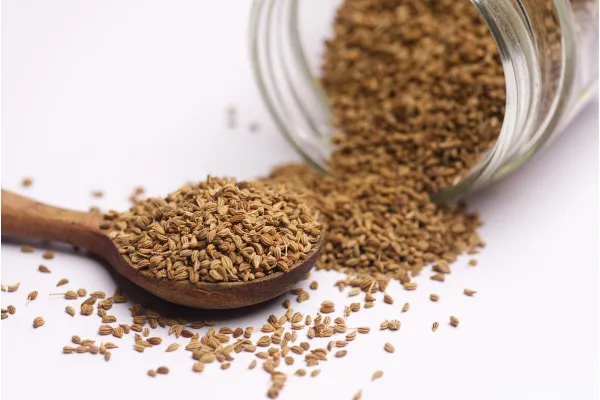Table of Contents
Ayurveda, the ancient Indian system of medicine, emphasizes the importance of gut health as the foundation of overall well-being. By balancing the digestive fire, or “Agni,” through mindful eating, herbal remedies, and lifestyle practices, Ayurveda restores harmony to the body. Maintaining a healthy gut not only enhances digestion but also strengthens immunity, boosts energy levels, and promotes mental clarity.
Did you know that 70% of your immune system lives in your gut? But its influence goes far beyond immunity—it also impacts your energy levels, mental clarity, digestion, and even skin health. With so much depending on a healthy gut, prioritizing digestion is essential. That’s where Ayurveda comes in—an ancient holistic science that provides powerful, natural ways to restore balance and support overall well-being.
Ayurveda views the digestive system as the foundation of overall well-being. In this blog, we’ll delve into how Ayurvedic principles, practices, and remedies can transform your gut health. You’ll also find practical tips to easily incorporate into your daily routine for a healthier, more balanced life.
The Wisdom of Ayurveda

Ayurveda, meaning “the science of life,” is a holistic healing system that originated in India over 5,000 years ago. It focuses on creating balance between the mind, body, and spirit to promote overall well-being. At the heart of Ayurveda lies the belief that good health depends on a strong digestive fire, or “Agni,” which plays a key role in metabolism, nutrient absorption, and overall vitality.
When your Agni is strong, you digest food efficiently, absorb nutrients, and maintain energy. A weak Agni, on the other hand, can lead to poor digestion, toxic buildup (Ama), and imbalances in your body’s natural energies, or Doshas.
The Three Doshas
- Vata (air and space): Governs movement. Imbalances can lead to gas, bloating, and irregular digestion.
- Pitta (fire and water): Governs metabolism. When out of balance, it can cause acid reflux and inflammation.
- Kapha (water and earth): Governs structure. Digestive imbalances manifest as sluggish digestion and heaviness.
Balancing these Doshas and nurturing your Agni is at the core of Ayurveda’s approach to gut health.
Why Gut Health Matters

The state of your gut has far-reaching implications for your overall wellness. Here’s why it’s so important:
- Digestive Function: Your gut processes food, absorbs nutrients, and eliminates waste—key for basic health.
- Stronger Immunity: A healthy gut supports a robust immune system, reducing susceptibility to illness.
- Mental Wellness: Your gut and brain are deeply connected. An unhealthy gut can lead to fatigue, stress, and even mood disorders.
- Energy Levels: Efficient digestion ensures you’re energized throughout the day.
Unfortunately, modern lifestyles—a reliance on processed foods and high stress levels—often compromise gut health. That’s where Ayurvedic practices shine, offering natural remedies to restore balance.
Identifying Digestive Imbalances

Are you experiencing bloating, heartburn, or fatigue? These are often signs of an imbalanced digestive system. According to Ayurveda, different Doshas influence your gut-related issues.
- Vata Imbalances
Symptoms include bloating, gas, and irregular bowel movements. Treat with warm, well-cooked foods and grounding spices like cumin.
- Pitta Imbalances
Symptoms include acid reflux, inflammation, and loose stools. Cooling foods like aloe vera and cilantro can help.
- Kapha Imbalances
Symptoms include slow digestion, heaviness, and constipation. Stimulate digestion with warm, spicy foods such as ginger or cinnamon.
Understanding these imbalances sets the stage for targeted, holistic healing.
The Ayurvedic Approach to Gut Health

Ayurveda offers various techniques to support digestion and restore balance, from dietary adjustments to mindful self-care practices.
Dietary Guidelines

- Eat Fresh and Seasonal Foods
Align your diet with nature, choosing fresh fruits, vegetables, and grains suited to the current season.
- Mindful Eating Habits
Chew your food slowly and avoid distractions while eating. Stick to consistent dining times each day to regulate digestion.
- Use Digestive Spices
Incorporate natural spices like turmeric, cumin, fennel, and ginger. These enhance digestion and strengthen your Agni.
- Avoid Incompatible Foods
Ayurveda warns against mixing certain foods, like drinking milk with fish or consuming sour fruits and dairy together.
Lifestyle Practices

- Start Your Day Right
Drink a glass of warm water or water infused with lemon first thing in the morning to flush out toxins.
- Practice Abhyanga (Oil Massage)
Regular oil massages with sesame oil or coconut oil promote relaxation and improve circulation.
- Try Yoga and Pranayama
Gentle yoga poses like twists and forward folds, paired with deep breathing techniques, can stimulate digestion and relieve stress.
These simple adjustments can work wonders for improving your daily digestive health.
Ayurvedic Herbs and Supplements for Gut Health
Ayurveda has introduced generations to the wisdom of healing herbs, many of which possess incredible benefits for digestion.
- Triphala

Triphala is a traditional Ayurvedic herbal blend made from three fruits – amalaki (Indian gooseberry), bibhitaki, and haritaki. Renowned for its gentle detoxifying properties, it supports digestive health, regularity, and overall well-being.
A widely used blend of three fruits, Triphala is known for its ability to detoxify the digestive system and promote regular bowel movements.
- Ajwain (Carom Seeds)

Carom seeds are a natural remedy to help alleviate gas, bloating, and indigestion. Keep a small amount handy and chew on them after meals for quick relief and improved digestion.
- Aloe Vera

Soothe inflammation in your gut lining and ease discomfort with aloe vera, which you can consume as juice.
Always source high-quality herbs and consult a qualified Ayurvedic practitioner before use.
Real Stories, Real Benefits
Many individuals have revolutionized their digestion by adopting Ayurvedic principles. Take Priya, for example—she struggled with bloating and fatigue for years. By introducing Triphala into her daily routine and focusing her diet on warm, fresh foods, she regained her energy and eliminated her discomfort.
These time-tested Ayurvedic practices stand as a testament to their effectiveness, and stories like Priya’s underscore their authenticity and powerful impact on overall well-being.
How to Incorporate Ayurveda into Your Daily Life
Starting an Ayurvedic lifestyle doesn’t have to be daunting. Here’s how you can begin your wellness transformation today:
Step-by-Step Tips
- Sip herbal teas like fennel or cumin after each meal.
- Dedicate time to cooking nutrient-dense meals with Ayurvedic spices.
- Plan consistent meal times to regulate your digestion.
- Quick Start Guide
Download our “3 Days to Ayurvedic Gut Wellness” guide to jumpstart your healthy habits.
Related Products from Flipkart
Your Ayurvedic experience begins with the right products. Explore these must-have essentials on Flipkart today and take the first step toward holistic wellness!
- Organic Herbal Teas (fennel, cumin) click here
- Digestive Spices (turmeric, coriander, ginger) click here
- Copper Water Bottles click here
- Ayurvedic Massage Oils click here
- Gut Health Supplements click here
Choose products with high reviews and see the positive impact they’ll have on your health.
FAQ’s (people also ask about)

1. How do I heal my gut in Ayurveda?
Follow a Satvik diet, drink warm water, eat fiber-rich foods, use herbs like triphala and ashwagandha, and avoid processed foods.
2. Which medicine is best for gut health?
Ayurvedic remedies like triphala churna, aloe vera juice, and buttermilk with cumin help improve digestion and gut health.
3. What is the fastest way to restore gut health?
Eat probiotic-rich foods like yogurt and fermented foods, drink herbal teas, reduce stress, and avoid junk food.
4. What is the best time to eat dinner according to Ayurveda?
Ayurveda recommends having dinner before sunset or by 7 PM for better digestion and overall health.
5. What foods should be avoided in Ayurveda?
Avoid processed foods, deep-fried items, too much sugar, heavy dairy, and reheated meals as they disturb digestion.
Your Journey to Gut Wellness Starts Here

Ayurveda provides a time-tested, holistic approach to strengthening your gut and achieving harmony in your overall health. By incorporating mindful eating, natural remedies, and balanced living, you can unlock a healthier, more vibrant, and more fulfilling life.
Start with small changes, and witness how they transform not only your digestion but your entire well-being. Dive deeper into the world of Ayurveda today and take the first step toward lifelong digestive wellness!
You can read our other articles here
The Miracle Weight Loss Drink Recipe You Need to Try
Tummy Trimmer Exercise for Belly Fat
Subscribe to our newsletter!





Thank you for your sharing. I am worried that I lack creative ideas. It is your article that makes me full of hope. Thank you. But, I have a question, can you help me?